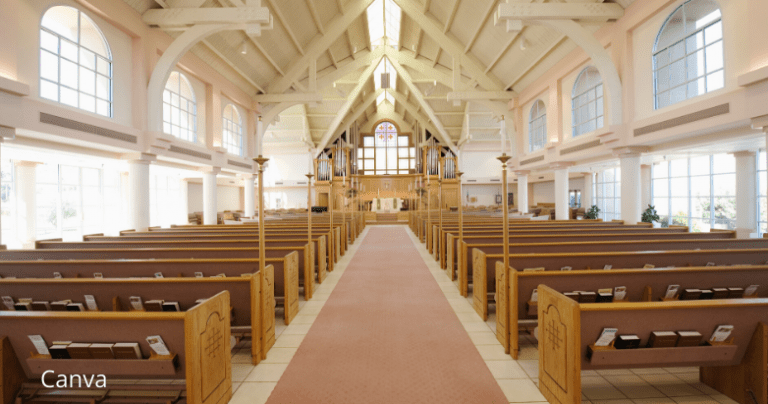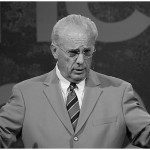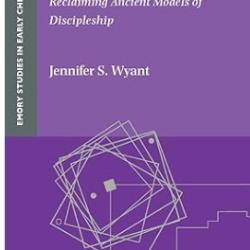
Stanley Hauerwas, in his work, A Community of Character, observes, “We rejoice in the difference and diversity of gifts among those in the church, as that very diversity is the necessary condition for our faithfulness. Discussion becomes the hallmark of such a society, since recognition and listening to the other is the way our community finds the way of obedience” (138).
Where are the prophetic voices today?
One of the reasons why we lack prophetic voices in the church today is due in part to the sermon—which I think is one of the worst genres for teaching.
I have been writing on evangelicalism for the past few months. I have noted that the evangelical church, in particular the right-wing of evangelicalism, in which I was raised, has brought serious harm to many and damaged the reputation of the Church in America.
As a result, we need prophetic voices, and we need them now!
(I am convinced that the problem is much worse than we might believe. In fact, I suspect that it is already too late to save evangelicalism—which I am not sure is all bad—though it is not too late to rescue some of the faithful that remain within evangelicalism).
We need prophetic cries for reform.
Then we need to repent and seek reconciliation.
WE HAVE A LONG WAY TO GO.
There are indeed a number of prophetic voices already crying out. The problem is that their voices and their cries for reform are largely going unheard.
It is my suggestion that the best place for prophetic voices to arise is within the local church. The pastors of these churches often still have the ears of many in their communities.
Though many are attempting to issue such a call and have made effective changes, the vast majority of evangelical churches remain stuck in the past and are ill-equipped to handle the changing times and respond effectively.
Over the next several posts, I intend to address the way we do church.
The Sermon
The primary opportunity for the prophetic voice in the local churches is the sermon. I would like to suggest that the sermon, which is the backbone of modern Protestantism, is not the best genre for communicating the Word and it is ill-designed for a prophetic call.
Now, in case you haven’t read my recent posts (and why haven’t you?) allow me to reiterate that I fully affirm the primacy of the Word in the life of people of God.
We are saved through the power of the Word, and we are continuously transformed by the power of the Word.
Lectures are an ineffective means of communication
We know that lecturing is one of the most ineffective means of imparting knowledge. So, what is the solution?
What if the sermon were interactive? What if people were given the opportunity to interact.
Value of interaction
Providing an opportunity in which people can interact accomplishes a number of things.
For one, it allows people the opportunity to process. Simply trusting that people will go home and contemplate the sermon isn’t reasonable. Very few will even remember the sermon by the time lunch rolls around.
The need for processing only increases as the prophetic nature of the message increases.
People need an opportunity to grapple with the message, struggle with it, and flush out its implications.
In addition, a time for discussion affords the opportunity to minimize misunderstandings. I have had numerous occasions in which someone referred to something I “taught” inaccurately. I was only made aware of the misunderstanding because I happened to have a discussion with them after the fact. The conversation allowed me the opportunity to clarify what I meant.
The problem is that I never even considered the possibility that someone would have understood me in the manner this person had. Since then, I often wonder how many other times people have “heard” something that I didn’t intend for them to hear. Without the opportunity for a discussion or follow-up conversation, I would not know.
The reality is that it is impossible for the preacher to be aware of how his/her message will be heard by everyone. One person may well have heard one thing and another person might well have heard something completely different.
NB: this is a massive problem for mega-churches and multi-site churches. Because people of differing backgrounds—genders, ethnicities, socioeconomic contexts, age, and more—all listen from their own perspective, it is unwise for a church to be too large unless they have mechanisms for interactive learning. The larger the church the more likely there are to be diverse communities and misunderstandings.
NB: this is also why it is good for pastors and teachers to have input before they preach. Listen to other voices. Not only in terms of what they think the text is saying, but also because it will provide insights into their needs.
All of this means that dialogue is necessary. Guided dialogue that asks tough questions of the Word and of our beliefs and actions.
People need a place where they can ask:
- “Are you saying this?
- “Do you mean this?”
- “What about this?”
These questions naturally and necessarily follow the prophetic word.
People need to process. They need to discern. They should not be expected to change simply because of a prophetic word uttered in a 20-50 min lecture.
I will note here, in closing, that providing a time for interaction and discussion regarding the Word also facilitates community.
NB: our goal is to keep these posts free of charge. I do not intend to ever hide them behind a paywall. I can only do this if those of you who have been blessed by them and can afford to give ($5, $10, $25, or more/month) do so. You can give a tax-deductible contribution by following this link.
Please share this post and let others know about determinetruth.
If you wish to view this blog on your smartphone through the Determinetruth app simply download the “tithe.ly church” app on your smartphone and insert “determinetruth” as the church name you wish to follow. Once it is loaded, simply click on the “blog” icon and it will automatically load.
If you would like to have Rob speak at your church or organization in person or via zoom, please let us know by filling out the contact info on the Contact me tab on this site.
















